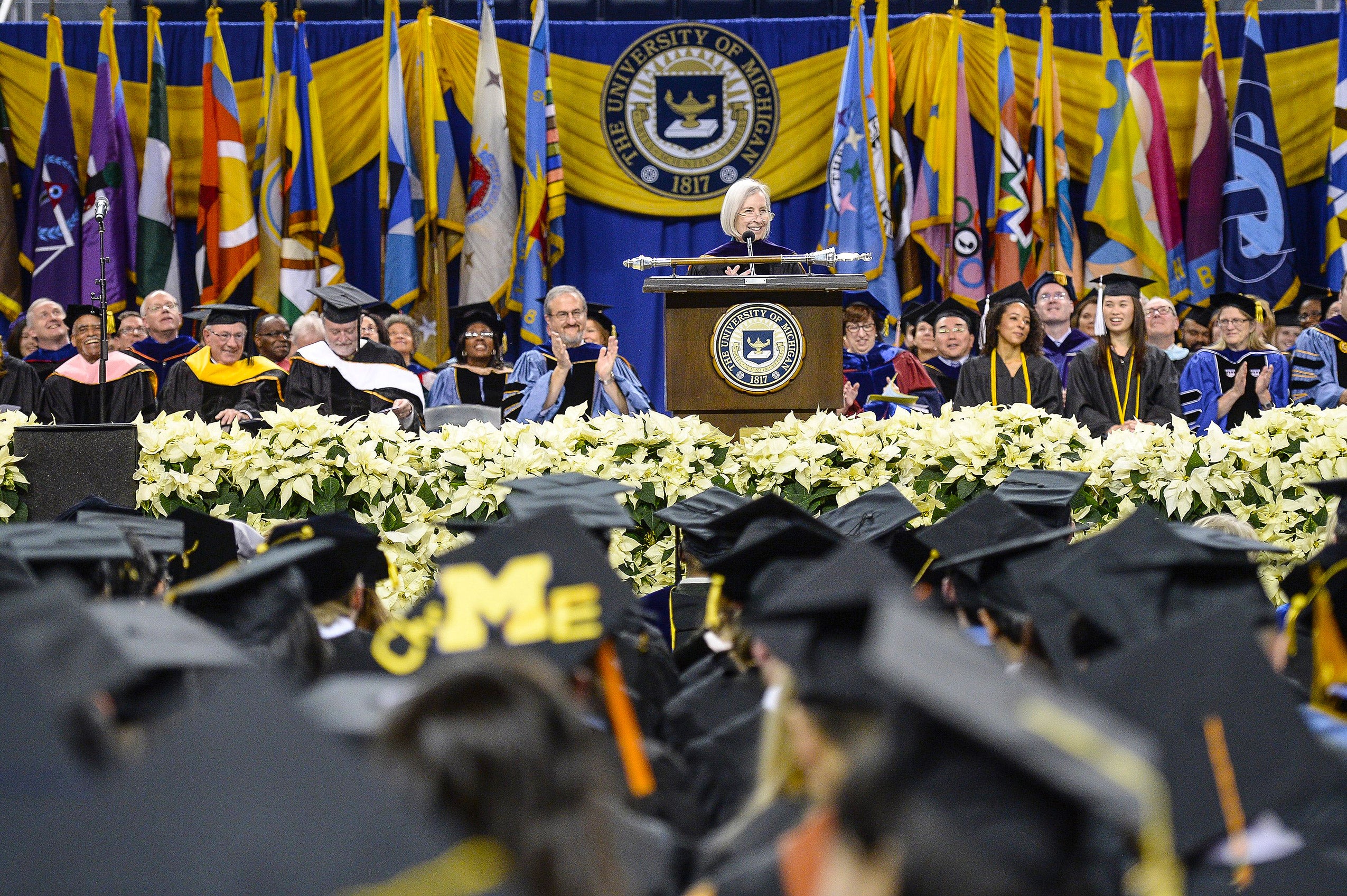In a keynote address delivered at the University of Michigan’s winter commencement exercises on December 20, Harvard Law School Dean Martha Minow urged students to address the serious challenges of our time and take action against injustice.
Minow, who has a B.A. in history from the University of Michigan, received an honorary doctorate during the ceremonies. Minow was honored for “demonstrating a deep commitment to equity in education and social justice throughout a distinguished career as an academic leader, legal scholar, teacher, human rights advocate, and public servant.”
In her address, Minow called on graduates to be “upstanders” instead of bystanders. She defined upstanders as those willing to stand up against injustice, bigotry, violence and wrongdoing. “An upstander may speak out publicly or may instead engage in secret resistance. An upstander may rescue individuals who are in danger—but then face danger, too,” she said.
She credited her former student Samantha Power ’99, the current U.S. ambassador to the United Nations, for introducing her to the term.
Minow acknowledged that being an upstander often requires a person to overcome peer pressure, skepticism and fear. “We all know it is easier and more familiar to do nothing and say nothing.”
While courage and a willingness to take a stance on controversial issues are often needed to face serious challenges, Minow said, history has shown that people are more likely to stand up because of their relationships than due to a sense of personal courage or personal beliefs.
“In the 1964 Civil Rights Mississippi Freedom Summer project, thousands of student volunteers registered African-Americans to vote despite violence and church burnings. The key difference between those students who stayed through the summer and those who dropped out was not ideological fervor but instead personal friendships,” she said.
She observed that it takes time and effort to build a culture of mutual support. “Taking even seemingly small acts in one’s own school can build the culture that prevents violence, bullying, sexual assault, and racial micro- aggressions,” she said. “You can build a culture wherever you go that makes it easier for people to stand up against what’s wrong.”
Minow encouraged students to use the knowledge and friendships they have gained during their time at the university to make an impact.
“You each are headed to new communities, for work, further study, and family and civic responsibilities. Wherever you go, you can join with others to make it more possible for each next act of upstanding.”
